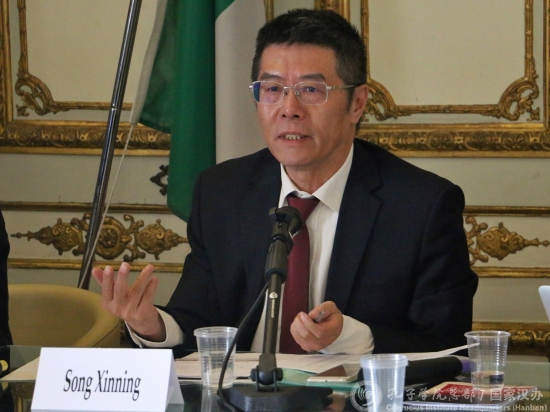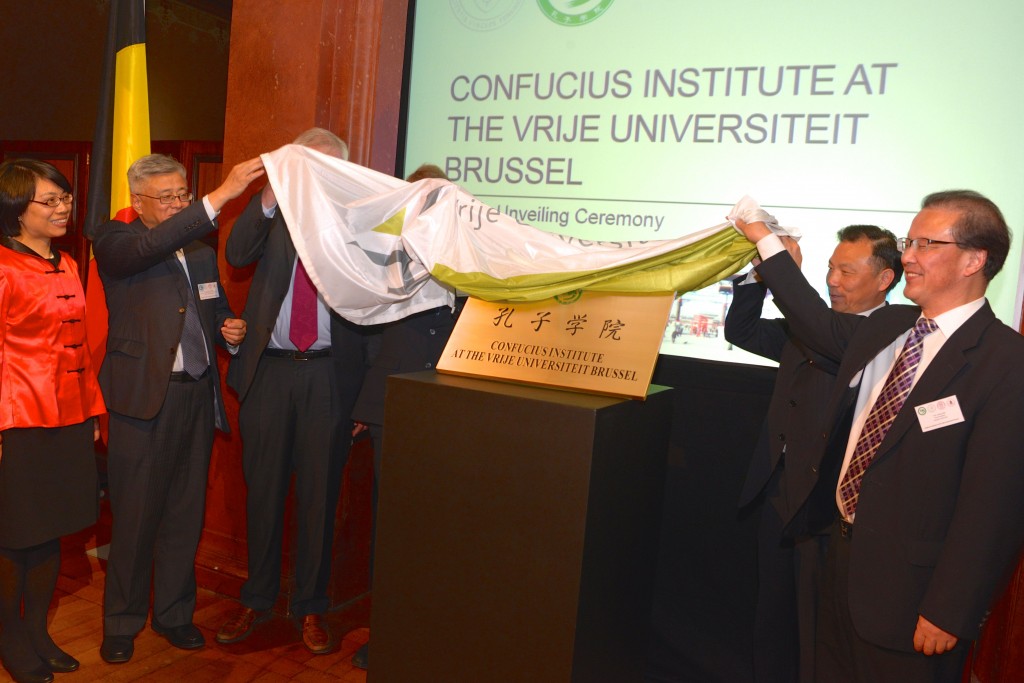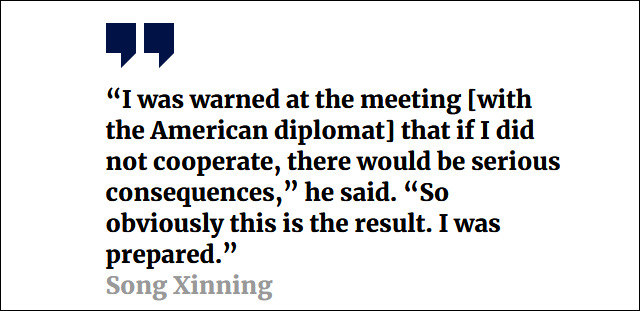Due to the so -called spy charges, Song Xinning, former dean of the Confucius Institute at the Confucius Institute of Chinese scholars and the University of Brussels, was banned from entering the country by Belgium, and was also banned from entering other Schengen countries within 8 years.
In an interview with the media, Song Xinning pointed out that he suspected that it was influenced by the United States. He had rejected a request for cooperation with an American diplomat with the American intelligence department. Now the ban is the consequences of unsuccessful cooperation.

Song Xinning Tuyuan See Watermark
According to Reuters on October 30, Belgium said on the same day that the country had refused to issue a residence to Song Xinning.Dominique Ernould, a spokesman for domestic political minister, confirmed the matter, but refused further comment on the grounds of privacy.
Song Xinning said to Reuters via email that the Belgian National Security Agency wrongly accused him of cooperating with the Chinese intelligence department, and he had appealed to the prohibition of entry.
Agence France -Presse said that the inbound ban took effect in 26 Schengen countries at the same time, 8 years.The report also quoted the Belgian media Morning News (De Morgen) and De Standaard, saying that Song Xinning was suspected of engaging in spy activities for China, but the report did not provide more details about allegations.
A spokesman for the University of Liberty of Brussels confirmed that the contract with Song Xinning has been terminated, and the Confucius Institute at the school will have a new dean nominated by China.
According to the source of AFP, it is rare for him to prohibit him from entering the Schengen 26 country because of his doubts about Song Xinning.

In May 2016, the launching ceremony of the Confucius Institute at the University of Brucel, Belgium, Source: VUB website
According to the Hong Kong South China Morning Post on the 30th, Song Xinning said that he suspected that Belgium's ban was influenced by the United States. He had previously rejected a proposal to cooperate with an American diplomat with the American intelligence department.
In my memory, he said very straightforwardly, lsquo; I know you cooperate with Chinese intelligence agencies, can you cooperate with us? RSQUO; Song Xinning recalled that American diplomats had made the above requirements to him, but they were immediately affected.By the time he refused, the time was roughly in early April, that is, when he waited for work permit and extend his visa.
Song Xinning said that he had previously obtained a work permit, but the Belgian Immigration Department told him on July 30 that because he supported Chinese intelligence activities, his visa would not be able to renew.In addition, Song Xinning was informed by the Belgian Embassy in China in September this year that he was banned from entering the Schengen country.
I was warned at the (Intrathy) meeting that if I did not cooperate, there would be serious consequences. Song Xinning said: Obviously this is the consequences, and I am ready.

Song Xinning said that it was banned by the consequences of refusing to cooperate with the United States in South China Morning Post.
Leiden Asia Center and the Clingndael Institute researcher Ingrid Drsquo; Hooghe said that Europe's academic circles are increasing.
She believes that Song Xinning's example shows that the European authorities seem to be strongly encouraged by the United States.
In recent years, Western countries led by the United States have a conspiracy theory of Confucius Institute. In February last year, a report announced that the Confucius Institute expanded China ’s influence without being supervised by the US government.The committee is seeking legislation to restrict it. If it does not reform, it should be shut down, but the report also acknowledges that there is no evidence that the Confucius Institute has the so -called espionage.
Public information shows that Professor Song Xinning is currently a member of the Academic Committee of the School of International Relations of Renmin University of China.He is also the executive director of the Chinese European Society, the vice chairman of the British Research Society, the academic committee member of the European research, and the editor -in -chief of the English academic journal published by six European regions.From June 2007 to June 2010, he served as senior researcher at the Institute of Integrated Regional Integrity (Belgium) at the United Nations University.



